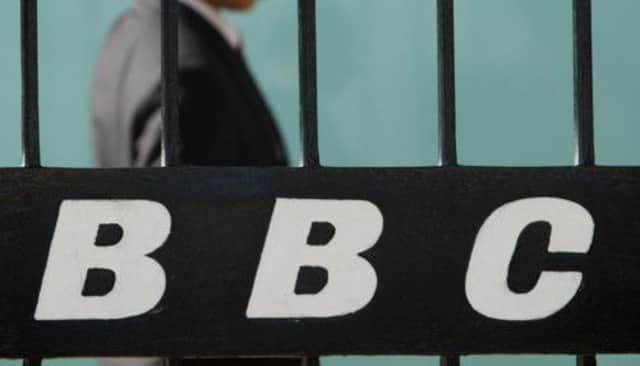BBC rapped over bosses’ £25m in pay-offs


The National Audit Office (NAO) said the broadcaster had breached its own guidelines and “put public trust at risk” by authorising severance payments for 150 top staff, almost a quarter of whom received more than they had been entitled to.
The NAO, which has been reviewing redundancy and severance payments to senior figures, concluded they represented “poor value for money” and that decisions had until recently “been subject to insufficient challenge and oversight”.
Advertisement
Hide AdAdvertisement
Hide AdThe NAO found in two cases the BBC awarded generous severance payments to employees it knew to have already found another job.
Concern about payments has been heightened following the decision to award former director-general George Entwistle twice what he was entitled to when he resigned from his job after only 54 days.
The report revealed his final pay-off of £475,000 included a further three weeks’ salary after the date of his resignation. His payment had previously been reported to be £450,000.
In its conclusions, the NAO said: “The BBC has breached its own policies on severance too often without good reason.
“This has resulted in payments that have not served the best interests of licence fee-payers. Weak governance arrangements have led to payments that exceeded contractual entitlements and put public trust at risk. The severance payments for senior BBC managers have, therefore, provided poor value for money for licence fee-payers.”
However, the NAO also found the savings made from the redundancies exceeded the level of the payments to staff.
The BBC’s new director-general, Tony Hall, said he accepted the NAO’s conclusions and added: “The level of some of these payments was wrong.”
He went on: “It is important to understand what was happening here. The BBC was trying to get its senior management headcount down, and it succeeded, reducing it from 640 to 445.
Advertisement
Hide AdAdvertisement
Hide Ad“As the NAO acknowledges, we have saved £10m over the period studied by the report and will keep on making savings every year. But we have to accept that we achieved our objectives in the wrong way. I believe the BBC lost its way on payments in recent years.
“I have already said that we will be capping severance payments at £150,000 and we have now begun to improve our processes. These payments were from another era and we are putting a stop to them.”
A total of 228 senior managers left the corporation up to December 2012, 150 of whom received severance payments. There were still 436 senior managers working at the BBC in February, according to the NAO.
The report said the BBC estimated it made £35m in savings as a result of senior manager redundancies – £10m more than it paid out. The average severance payment for senior managers over the three-year period was £164,200.
Culture Secretary Maria Miller said: “The report shines a light on a culture at the BBC where individuals received payments that went beyond the already very generous terms of their contract. I welcome the fact that the BBC is looking at future payments – a move which this report suggests is long overdue.”
SEE ALSO: